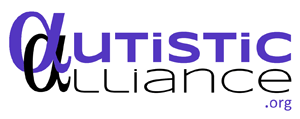(Écrivain et conférencier : Éric LUCAS)
Oral statement for the UN CRPD Committee
about deinstitutionalisation in France
in the framework of the online regional consultations
with persons with disabilities and their representative organizations
– Peut 25, 2021 –
Vidéo de l'enregistrement en direct de cette déclaration: https://www.youtube.com/watch?v=vOen2DYcd2U
Video of the French version: https://www.youtube.com/watch?v=NWB8RyJ5RGM
Dear Members of the Committee, dear colleagues
En France, for persons with disabilities, the State outsources to private associations, distributing
money to them and ignoring questions of ethics, rights and control.
These associations participated in the elaboration of the disability law, which presents them as
representative organisations, and which therefore allows them to participate in decisions.
Many of the government officials in disability come from that associative sector.
Le mot « deinstitutionalisation » is absent from official texts, but some measures give the
illusion.
For example, institutionalised children are taken to mainstream schools and brought back to the
institution in the evening.
« Inclusive housing » is created, but it depends on these associations.
There is no suppression of beds.
There is almost no accessibility for autistic people, given that we mostly need human and
regulatory accommodations (which cost almost nothing) in the public socio-administrative
system, which cannot do it because it only knows how to distribute money to private entities.
2
The State does not make efforts for accessibility, pretending to believe that the institutions are
sufficient, and these cannot make efforts for the autonomy and liberation of their « human
assets ».
In the public services offered to ‘ordinary’ personnes, the State has obligations of means, rigour, et
respect for human rights, but the level of those requirements is lower in the private sector.
In the institutions, the rule of silence prevails, and abuse is almost never punished, since the
system is complicit.
So the State, by privatising the management of disability, discharges its responsibilities and
creates a « disability market system » generating perverse effects and harmful conflicts of
interests.
If everything were managed by the public sector, there would be no economic pressure from
lobbies.
And then, instead of paying between €200 and €300 per day per person to these establishments
or services, this money could go directly to the persons, with « assistance vouchers » allowing to
choose assistants nearby.
The State should be forced to allocate funds only if there is no hosting, and to eliminate any
possibility of interference by service providers.
Public socio-administrative assistance must be accessible remotely by any means and by any
person with a disability.
Universal design and accessibility must be implemented for all types of disabilities, including
psychosocial and autism-related disabilities.
To do this, public authorities must accept to listen to us in order to better understand autism.
International organisations and foreign countries should denounce this exploitation and
apartheid.
Liberty is a sacred and non-negotiable right of every living being : free our people!
